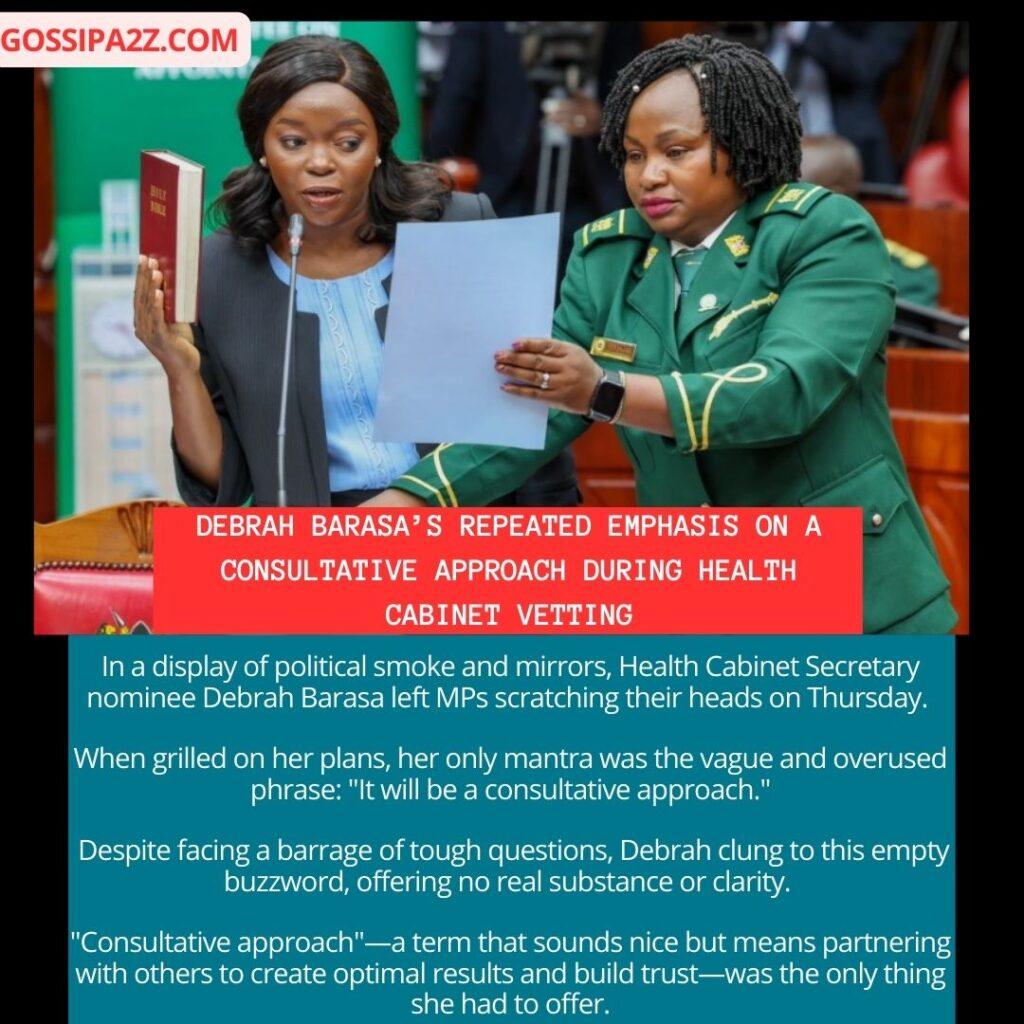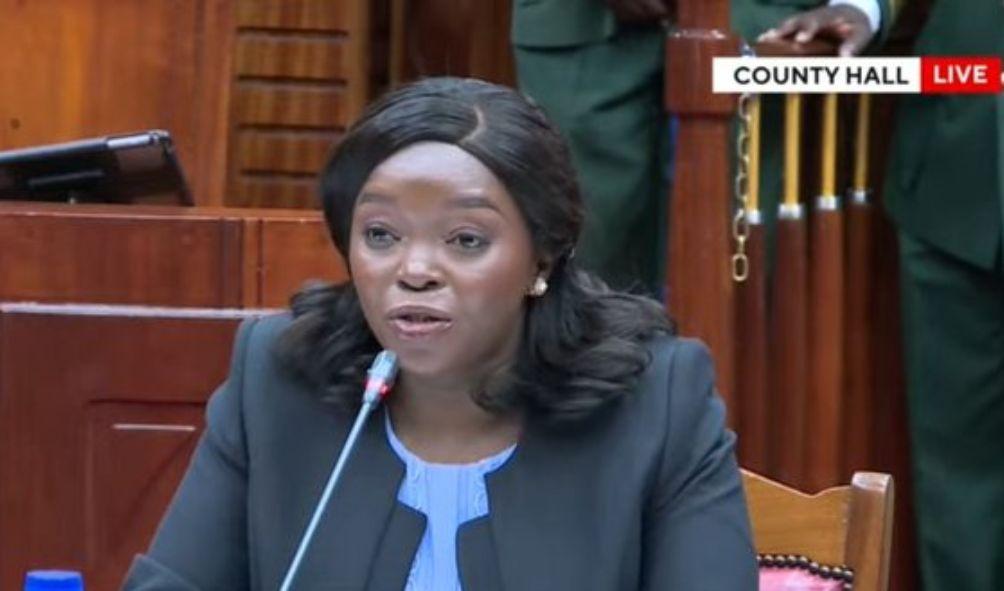Debrah Barasa’s Repeated Emphasis on a Consultative Approach During Health Cabinet Vetting
It will be a consultative Approach!
Health Cabinet Secretary nominee Debrah Barasa repeatedly provided the same response to MPs during her vetting on Thursday.
Despite being asked numerous questions, Debrah consistently responded with, “It will be a consultative approach.”
A consultative approach involves working together with others to achieve the best outcomes while fostering trust and dedication.

This idea reflects the essence of quality management and offers a framework for cooperative efforts that enhance the likelihood of success.
“How would you deal with the gaps facing the shift from National Health Insurance Fund (NHIF) to Social Health Insurance Fund (SHIF)?” a question was posed to her.
Her response was, “My approach is a consultative one. It is critical to bring all stakeholders together. We also need to involve the community and ensure they are well-informed,” she said.
On her opinion on health about the devolved government, she answered:
“Again, a consultative approach. I believe we need to involve the County and National governments to have open dialogue and come up with interventions. We need to conduct a situational analysis and identify the strengths, weaknesses, opportunities, and threats,” she said.
Regarding the holding of deceased bodies and recovered patients until hospitals receive payment, she used the term “consultation” in the same manner.
ALSO READ:
- Inside Job Exposed: Kenyan Prison Wardens Convicted for Orchestrating Daring Terrorist Escape
- Uganda Pulls the Plug: Nationwide Internet Blackout Ordered Days Before Crucial General Election
- African Elections Under the Spotlight as Zambia Turns to Kenya Ahead of 2026 Vote
- “Two Drug Barons in Cabinet?” Kenya Government Fires Back as Ex-Deputy President Sparks Explosive Drug Claims
- Kenyan Court Freezes Use of Private Lawyers by Government, Sparks Nationwide Legal Storm
“So strategically thinking we need to consult and see what are the gaps and then involve treasury,” she answered.
When Majority Leader Kimani Ichungw’ah inquired about how Barasa, if confirmed, would address the theft seen in NHIF by both public and private medical practitioners and reduce healthcare costs, she responded:
“First of all, my approach is a consultative approach involving the multiple stakeholders,” she said.
When Kathiani MP Robert Mbui inquired about Barasa’s plans for tackling corruption in the health ministry if she were appointed as its CS, the same term was utilized.
“Again, a consultative effort. It is important that we think strategically, involve the various stakeholders, the Nationals Technical Working Group, the PSs, and DGs to conduct a situational analysis and see where the gaps are,” she said.
A point of order was raised at one stage, requesting that she cease using the term “consultative approach” repeatedly.
“What is your opinion nominee minister? If you say consultative what’s your opinion as the leader? You support or you don’t even support before you do your consultation,” Pokot South MP David Pkosing asked.
ALSO READ: Health CS Pick Debra Barasa Unveils Her Journey and Wealth
“What is your mind? You are running away from being personal. But what exactly is the consultative approach? We want to get your suitability. You. Not a group but you.”
She was asked for her opinion on the National Health Service Commission and later stated that she was in favor of it.
“As part of the doctors’ fraternity, I support the creation of the health commission,” Barasa said.
Matungulu MP Stephen Mule questioned the terminology, noting that the committee was keen to understand her perspective and approach to transitioning.
He emphasized his interest in learning about her management abilities, given that the Health Ministry consists of various departments and individuals who will rely on her leadership.
“I want to hear how you will transit from that set mind of thinking and no wonder you are telling us every time consultation. Here it is whereby the law applies. The law which is applying at KEMSA is not the same law which is applying with the doctors,” Mule said.
Debrah Barasa’s Repeated Emphasis on a Consultative Approach During Health Cabinet Vetting
